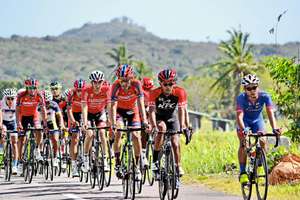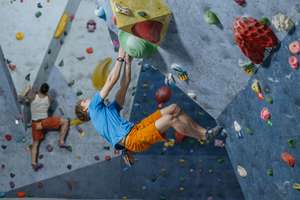
Is it True that Anybody Can Be Good at Sports?
Ever wondered if anyone can truly become a sports superstar? The burning question lingers: Is it possible for anyone to excel in sports, or are some simply born with a natural knack? Well for me I can say Yes, because with perseverance and structured training, you can realize your full potential in sports.
Can just about anybody become good at sports? Well, let's dive right into it because it's a topic that stirs up curiosity and debate among athletes and enthusiasts alike. Make sure you stick to the end as you will also find some FAQs at the end of this article.
Defining Sporting Aptitude
Sporting aptitude consists of countless attributes that contribute to success in sports. It encompasses not only physical prowess but also strategic thinking, mental acuity, and emotional resilience. A blend of cognitive skills, agility, strength, and coordination forms the foundation of sporting excellence.
Nature versus Nurture Debate in Sports
The ongoing discourse surrounding nature versus nurture in sports is multifaceted. While genetic predispositions may confer certain advantages, environmental factors and opportunities for development play fundamental roles as well.
Access to training facilities, coaching expertise, and supportive networks can significantly shape an athlete's trajectory. Try to employ the above and you’ll see magic in your sports journey.
Also Read: Why Am I so Bad at Sports?
Psychological Factors in Sporting Success
Psychological fortitude is a cornerstone of athletic achievement. Determination, focus, Confidence, and the ability to manage pressure are paramount. Athletes who cultivate a positive mindset, set achievable goals, and embrace challenges often outperform their peers. I know you agree to this and that’s the spirit of sports excellence.
Physical Attributes and Athleticism in Sports
Physical attributes are important to athletic performance. Flexibility, Speed, power, and endurance are prized assets in various sports. However, the significance of these attributes may vary depending on the demands of the game. Adaptability and the ability to leverage individual strengths are key.
Also Read: How Has Football Evolved Over the Years?
The Role of Practice and Training
Practice and training are crucial components of athletic development. Consistent effort, guided by knowledgeable coaches and informed by modern methodologies, nurtures skill refinement and physical conditioning. Deliberate practice, accompanied by restorative measures and proper nutrition, optimizes performance potential.
Frequently Asked Questions:
1. Can anyone become good at sports?
Yes, with perseverance and structured training, anyone can enhance their athletic abilities and realize their potential in sports. Discipline, dedication, and a growth mindset are instrumental in achieving success.
2. What factors contribute to success in sports?
Success in sports is a culmination of various factors, including coaching quality, genetic predispositions, training schedules, mental resilience, and access to resources. A holistic approach to athlete development includes mental, physical, and emotional dimensions.
3. Are genetics important in sporting success?
Genetics may influence an individual's predisposition to certain physical traits, but they do not dictate athletic destiny. Determination, Hard work, and effective training programs can compensate for genetic limitations and foster growth and improvement.
4. How can one improve their sporting skills?
Improving sporting skills requires a comprehensive approach that includes structured training, strategic planning, technical enhancement, and mental conditioning. Seeking feedback, setting measurable goals, and embracing challenges are important to growth and progression.
5. Is it too late to start sports if you're not naturally talented?
It's never too late to embark on a journey in sports. While early exposure and innate abilities may offer advantages, perseverance, commitment, and a willingness to learn can bridge the gap. Lifelong learning and adaptation are hallmarks of athletic success.
6. Can mental preparation help in sports performance?
Absolutely. Mental preparation is a critical aspect of athletic performance. Visualization techniques, goal-setting strategies, and stress management practices enhance focus, confidence, and resilience under pressure. Cultivating a resilient mindset fosters consistency and peak performance.
Author’s Opinion and Recommendation
In my opinion, the journey to sporting success is a testament to the human spirit's resilience and determination. While inborn talent undoubtedly plays a role, I firmly believe that with dedication, hard work, and the right mindset, anyone can achieve greatness in sports. From my personal experience, I've witnessed individuals of all backgrounds and abilities rise to the challenge and surpass expectations on the playing field.
Therefore, embrace the journey. Whether you're a seasoned athlete or just starting out, focus on continual improvement, set achievable goals, and surround yourself with a supportive community. Don't be discouraged by setbacks or perceived limitations. Instead, view them as opportunities for growth and learning. Remember, the road to sporting excellence is not always smooth, but it's the challenges we overcome along the way that define our true potential.






